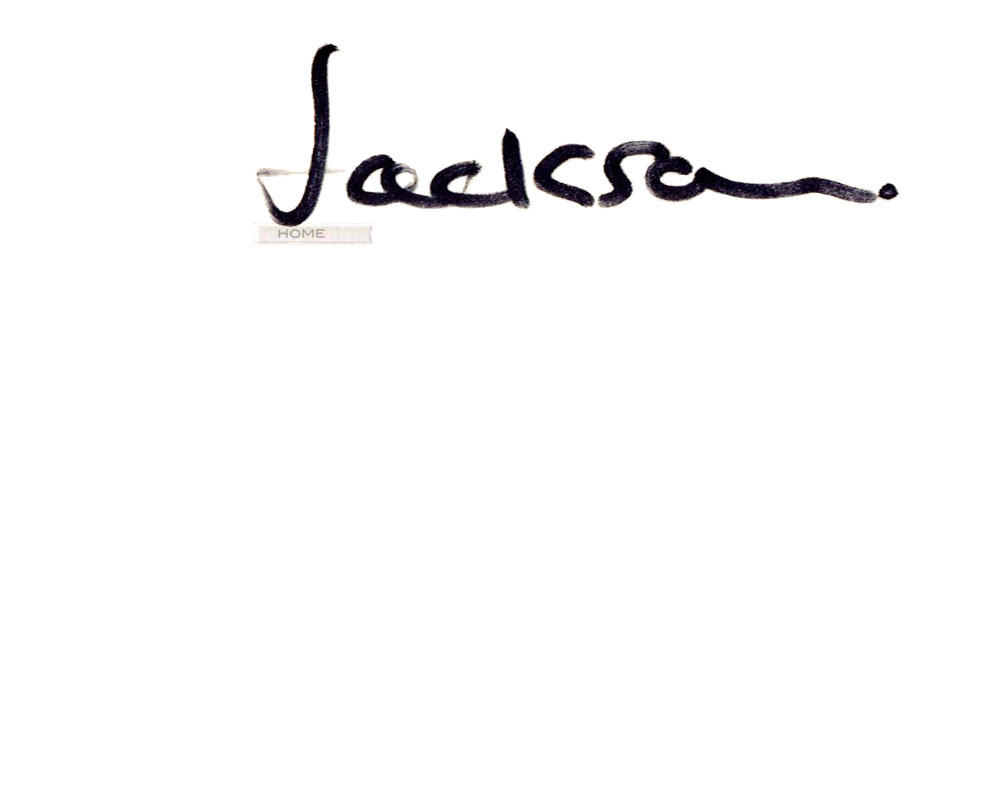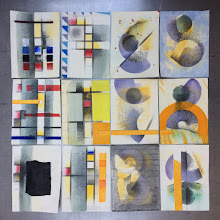Women are wonderful.
I'd barely, if ever, 'be honest Kev,' I'd never heard of Kuniyoshi until Nat told me and asked me to go and see the exhibition as she could not, and when I explained this to Noughty A in the studio, that is noughty with an 'o', she immediately arranged us to go together. 'That'll do,' I thought. 'This won't be so bad after all.' The exhibition may turn out to be incomprehensible and a chore, but I shall have the company of a beautiful woman as compensation.
Kuniyoshi at the Royal Academy.
Oh hell! That place again. I know, or know of, or knew too many people there, and the knowing has never helped me get a picture into their travesty Summer Exhibition. Not once. I swear it's nepotism in reverse. The RA owes me hundreds in futile entry fees and aggravation.
Worse yet, as I slunk in across the courtyard paddling around the corny water spouts, I saw with horror that the London Original Print Fair was in mid jamboree. No wonder half the purposeful striders through the tourists looked so familiar. There were the print dealers betraying their nerves looking expo cocky, printmakers looking desperate, and the printers hungry as hell.
Waiting for Noughty A, as I should wait, I mused over the London Original Print Fair flier.
The Daily Telegraph's man Richard Dorment's quote, 'By far the best place to buy prints' headed the exhibitor list of old names, re-namings and the odd unknown. The odd newcomer?
I must be out of touch. Eyestorm - and later to Safari - Google? Oh it's Them. Again.
Andrew Edmunds - hmmm. Have I forgotten? Perhaps I never knew, perhaps Andrew Edmunds is new, but no time to dwell on Andy new or not as lovely A arrived, buoyed me to attention, buoyed me up the stairs, into the lift and we were in.
Kuniyoshi.
I'd hate to admit that I could ever forget my sweet companion, but I very nearly did forget her.
Not at first though, my spirit sank as it always does when viewing old prints and drawings in museum conditions. I want to see these things, not peer tiringly at them glass encased in the dingy gloom of conservation lighting, scrabbling over and over to remove sunglasses I'm not wearing. Not that I don't appreciate the necessity and not that you can't see the work, and Kuniyoshi's shone through the dusk.
Bugger the monied grandiosity of the Print Fair below, here were prints of domestic human scale. No spurious limitings of editions, nothing unoriginal, each a commercial production of multiples from cherry wood blocks cut to print hundreds, thousands, or none if no good. The handcolouring is without any doubt skilled but shows endless human fallibility. The printing blocks are small, cherry tree scale and the images are composed of several blocks set tiled together; printed and coloured separately, the variations of washes and blends don't match across the entire image, nor does the pasting together register one printing precisely to its neighbour - this might have mattered to the printers and colourists in the print shop, now, it doesn't matter a bit.
There are lots of other printmakerly presentation tricks to enjoy: blind embossed textures, the fibrous grain of the paper giving lustre to solid colours, metalic pigments in the colour washes and inks, all good stuff of course but 'what of the images?'
The overall impression is narrative rather than illustrative. Noughty A, unforgotten, introduced me to Manga when we marvelled at the obvious post referencing in comic and graphic art. There were copperplate printing influences in the uses of block textures and wash, from Dutch engravings reaching Japan, and the feeling that there is nothing new under the sun. Standing in front of the largest pieces, tall multi-block tower block prints perhaps a meter high with slashing vertical colour marks, I overheard a man reminded of Ian Davenport's painting.
There is a series of battledores which looked like they should be taken home and cut out to shape. Another series, of clever, rather sinister graphic surrealism; of faces which on closer inspection are composed of contorted bodies.
The graphic line, so labour intensive to achieve in block cutting for relief printing reminded us of brush strokes more than the marks of nib or pencil.
But is it art? 'Probably not,' I think, but then wonder at the boldness of each composition stripped back for craft production, ease, speed and cost effectiveness, but compensated for by wild diagonals and irrational composition dominated as much by the graphic panes and seals as the pictorial content. Many of these prints were meant to be handled, left on tables or seen askew on other people's laps, they weren't conceived to hang framed on the wall. They look pretty good on the wall though and there's humour. A fight on a roof almost slapstick, and a series depicting named officials under attack. 'Number 47: Loyal Retainer Nakamura Masatatsu fending off a hurled brasier' was my favourite of the day.
I had a moment's uncertainty as I grinned. 'Was this meant to be funny?' What do I know about Japan, next to nothing and resolving to re-read Mishima, lend Mishima to lovely A and investigate calligraphy with her, we walked out into the dazzle of spring sunshine, exhausted, reaching for shades, strolling away through teeming London exhilarated as if we were the only ones there.
'What size are they?' asked Nat. None bigger than imperial (76 x 56 cms), most smaller, excepting the two tower block images. The wood block on display was approximately a foot square. (30 x 30 cms)
Kuniyoshi is at the RA until early June.
The London Original Print Fair finished today, Sunday. Whether you've missed it or anything, there'll be another print fair coming along soon.






























